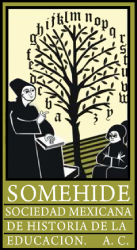The educational project of José Vasconcelos. The first attempts to articulate the affective with the cognitive
DOI:
https://doi.org/10.29351/amhe.v3i2.455Keywords:
cognition, emotions, educational policyAbstract
This article gives an account of the educational project of José Vasconcelos at the head of the SEP (Secretary of Public Education) during the government of Álvaro Obregón, as one of the first attempts in educational policy to link affective and cognitive aspects in the teaching-learning processes, in addition to setting the bases to incorporate the socio-emotional dimension both in primary education study plans and programs and in the subsequent issuance of free textbooks. This analysis exercise was possible thanks to exploring the approach of the history of the present and reversing, in Chesneaux’s way, the past-present dynamic that has led to a stagnant history, a boring version of history, for a present-past one that puts highlights the reflection from everyday life. That is, it is based on two facts: on the one hand, the educational reform undertaken by the current federal administration 2018-2024, whose intention is expressed in Article 3 of the Constitution by stating that education “will be comprehensive, will educate for life, with the purpose of developing in people cognitive, socio-emotional and physical capacities that allow them to achieve their well-being”; on the other hand, the effects of the pandemic caused by COVID-19, that forced us to review the way in which socio-emotional education has been developed in the official norms and in the regulations of the different educational institutions. Therefore, it becomes clear that the current educational policy amalgamates some components of the different educational projects, as is the case of the Vasconcelista project, by making very clear the responsibility that the State has to deliver education in its broad sense of cultural and artistic content to all corners of the country and to all sectors of society. Will we teachers be up to the task of provoking emotion and generating enthusiasm?
References
Fell, C. (2009, jul.). Vasconcelos: vigencia educacional y cultural. Proceso, (1705), 60-64.
Latapí Sarre, P. (1998). I. Un siglo de educación nacional: una sistematización. En Un siglo de educación en México (t. I, pp. 21-42). Conaculta/FCE.
Loyo, E. (2021, ago. 24). Enseñar a vivir. La acción de la Secretaría de Educación Pública en el medio rural, 1921-1940 [Conferencia]. Historia de la Educación Siglo XX.
Moreno Toscano, A. (1999). Alfabeto, pan y jabón. La Jornada (suplemento Revisión Siglo XX), pp. I-IV.
Ornelas, C. (1995). La misión del sistema educativo mexicano: tres reformas profundas. El cambio profundo: la creación de la Secretaría de Educación Pública. En El sistema educativo mexicano. La transición de fin de siglo (pp. 95-124). CIDE.
Poder Ejecutivo Federal (2019). Programa Sectorial de Educación 2019-2024. SEP.
Presidencia de la República (2018). Versión estenográfica de la conferencia de prensa del presidente de México, Andrés Manuel López Obrador, del 12 de diciembre del 2018. https://lopezobrador.org.mx/temas/reforma-educativa/
Downloads
Published
How to Cite
Issue
Section
License
Copyright (c) 2023 Carpóforo Emilio Martínez Vences

This work is licensed under a Creative Commons Attribution-NonCommercial 4.0 International License.
Todos los contenidos del Anuario Mexicano de Historia de la Educación se publican bajo una licencia Creative Commons Atribución No Comercial 4.0 Internacional (CC BY-NC 4.0), que permite compartir (copiar y redistribuir el material en cualquier medio o formato) y adaptar (remezclar, transformar y construir a partir del material) para fines no comerciales, dando los créditos a los autores y a la revista, tal como lo establece la licencia.
La política de acceso abierto y de licencias con “algunos derechos reservados” no niega la propiedad intelectual ni los derechos de los autores respecto a sus artículos, pues ellos son los titulares, en tanto que el Anuario Mexicano de Historia de la Educación no los reserva para sí ni para la institución editora, ya que se apegan a movimientos de acceso abierto como los Principios y Valores del Sistema de Información Científica Redalyc - Red de Revistas Científicas de América Latina y el Caribe, que pugnan por la eliminación de las políticas de embargo para que el autor retenga los derechos de su obra (principio número 8). Así como las políticas de acceso abierto del Directory of Open Access Journals (DOAJ).
Los autores podrán distribuir su propio material en cualquier otro medio o soporte, siempre y cuando sea para fines no comerciales, informando a los editores que el trabajo será publicado nuevamente y dando el crédito correspondiente al Anuario Mexicano de Historia de la Educación.
La publicación en el Anuario Mexicano de Historia de la Educación, por su carácter gratuito, no da derecho a remuneración económica alguna a los autores, ni a los dictaminadores.
Los lectores podrán reproducir (copiar), comunicar, distribuir o hacer obras derivadas de los artículos o colaboraciones publicados en el Anuario Mexicano de Historia de la Educación en los siguientes casos:
- Para fines públicos.
- Sin fines comerciales.
- Que se reconozca la autoría de la obra y se cite su origen con información completa: Apellido/s del autor, inicial/es del nombre/s. (año de publicación). Título del artículo. Nombre de la revista, volumen (número de ejemplar), página inicial del artículo-página final del artículo. DOI o URL (formato sugerido de acuerdo al estilo APA en su versión más reciente).
El cuerpo editorial del Anuario Mexicano de Historia de la Educación asumirá el compromiso de notificar oportunamente a los autores sobre cualquier cambio de ubicación de los artículos en el sitio (cambio de dirección URL o de conexiones para identificar el artículo).
Los autores, al enviar sus trabajos para su posible publicación, deberán tomar en cuenta los puntos anteriores, mismos que se contemplan en el Acuerdo entre autor y el Anuario Mexicano de Historia de la Educación.












